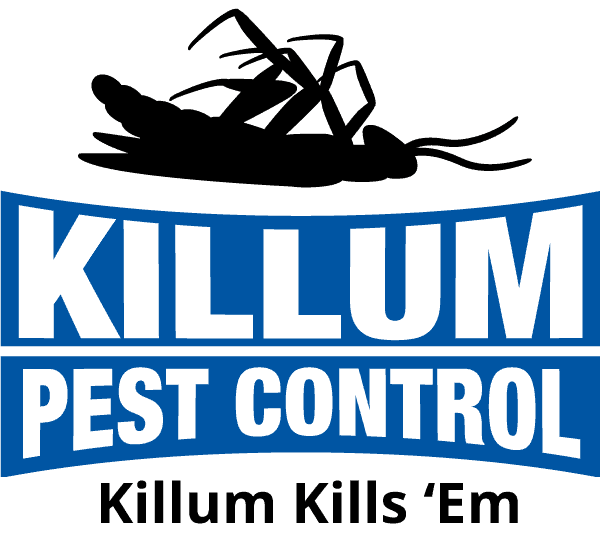Living in Texas means occasionally sharing your space with scorpions. These creepy crawlies are common in the region and can sometimes find their way into homes or gardens. While most scorpions in Texas are not deadly, a sting can cause discomfort and stress, especially for children and pets.
Understanding scorpion habits and where they like to hide is essential for keeping them out of your living spaces. They usually prefer dark, damp areas where they can hunt for insects. By knowing their behavior, you can make simple changes in and around your home to reduce the chances of a scorpion encounter.
Prevention is your best defense against scorpions. With the right strategies, you can keep them at bay and protect your family. This guide will help you recognize common scorpion species, learn about their habits, and explore effective ways to prevent them from becoming unwelcome guests in your home. Staying informed and prepared can make all the difference when it comes to coexisting safely with these eight-legged neighbors in Texas.
Recognizing Scorpion Species Common in Texas
Texas is home to several species of scorpions, each with unique characteristics. Knowing which types are common helps in identifying and managing them effectively.
1. Striped Bark Scorpion: This is the most common scorpion in Texas. It can grow up to 3 inches long and has distinctive dark stripes across its back. Its sting, while painful, is usually not life-threatening.
2. Texas Cave Scorpion: Found more often in caves and rocky areas, this scorpion is darker in color and slightly larger than the striped bark scorpion. Its sting is mild, similar to a bee sting.
3. Giant Hairy Scorpion: This species is less common but notable for its size, reaching up to 6 inches. Despite its intimidating appearance, its sting is usually no more serious than other local scorpions.
Identifying these scorpions can help you understand what you’re dealing with if you encounter one. Most scorpions are harmless; however, it’s essential to exercise caution and seek medical advice if someone stung experiences severe symptoms. Being aware of these species and their typical behaviors can help you coexist safely without unnecessary alarm.
Understanding Scorpion Behavior and Habitats
Scorpions are fascinating creatures with habits that help them survive in harsh environments. Knowing their behavior and preferred habitats can be crucial in avoiding them.
Nocturnal Nature: Scorpions are primarily active at night, hunting for insects. They usually hide during the day to avoid the sun and heat, which keeps them moist and shelters them from predators.
Preferred Habitats: Most scorpions love dry and warm places. They seek shelter under rocks, logs, and in crevices. In homes, they might settle in attics, basements, or garages where it’s dark and cool.
Diet and Hunting: Scorpions feed on insects, spiders, and sometimes even small vertebrates. They use their pincers to capture prey and deliver a venomous sting if necessary. Their ability to go long periods without food makes them resilient fighters in the wild.
Attraction to Water: While they prefer dry conditions, scorpions are drawn to water sources. Leaks and standing water near homes can attract them, so maintaining dry conditions can deter them effectively.
Understanding these behaviors can help reduce the chance of encountering scorpions in your environment. By knowing where they hide and what they seek, you can adjust your surroundings to make your property less inviting to these critters, enhancing your safety and comfort.
Effective Strategies for Scorpion Prevention
Keeping scorpions away from your home involves a few simple strategies. By making a few changes, you can create an environment that’s less inviting for them.
Seal Entry Points: Check windows, doors, and any cracks in your home’s structure. Use caulking or weather stripping to seal these areas and prevent scorpions from sneaking inside.
Remove Clutter: Scorpions love hiding in piles of clutter. Keep your yard tidy by removing debris, rocks, and woodpiles. Inside, avoid leaving shoes and clothes on the floor, providing fewer hiding spots.
Fix Moisture Problems: Repair leaks and ensure good drainage around your home. Scorpions are attracted to water, so keeping areas dry helps keep them at bay.
Use Outdoor Lighting Wisely: Scorpions hunt by night and are attracted to lights that draw in insects. Consider using yellow outdoor lights, which are less attractive to bugs, reducing food sources for scorpions.
Regular Inspections: Walk around your property regularly and inspect for signs of scorpion activity, such as burrows in the soil or remains of prey. This can help you catch signs of an infestation early.
By employing these proactive measures, you can significantly lessen the likelihood of scorpions setting up residence in your home or yard, helping to maintain a safer living environment.
Safety Tips for Handling Scorpion Encounters
Encountering a scorpion can be unsettling. Knowing how to handle such situations can keep you safe and calm.
Stay Calm: If you see a scorpion, remain calm. Avoid sudden movements that might provoke it.
Use Tools, Not Hands: If you need to move the scorpion, use a long tool like a stick or tongs to keep a safe distance. Flicking it away from living spaces is safer than trying to capture it by hand.
Check Clothing and Shoes: Scorpions sometimes hide in clothing or shoes. Shake out items before wearing them, especially if they’ve been left on the floor.
Wear Protective Footwear: If you’re walking in areas where scorpions are common, wear shoes instead of sandals. This reduces the chance of a sting to your toes or feet.
Seek Medical Help if Stung: Most scorpion stings are not life-threatening, but if stung, clean the area with soap and water. Monitor for allergic reactions and seek medical help if symptoms worsen.
By following these safety tips, you can manage scorpion encounters effectively, minimizing the risks associated with stings and possible allergic reactions.
Conclusion
Being aware of scorpions and knowing how to manage them can make a big difference in living safely in Texas. Recognizing local species, understanding their behavior, and taking preventive measures can significantly reduce encounters. Making your home less inviting to scorpions and learning how to handle them safely ensures peace of mind. Remember, prevention is key, but being prepared for unexpected encounters keeps you and your family protected.
Protect your home and family from unwelcome scorpions by partnering with Killum Pest Control, Inc. Our professional pest control team knows exactly how to handle scorpion problems, offering reliable solutions tailored to your specific needs. Reach out to us today and take the first step towards a safer, scorpion-free environment. Let’s work together to keep your surroundings secure and comfortable.





